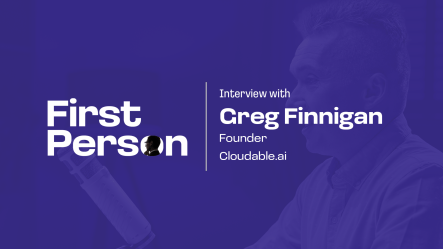It’s challenging the monolithic single-vendor approach to ERP by partnering with Snowflake, Databricks, and Salesforce.

Workday kicked off its annual Workday Rising conference with a series of announcements – and they weren’t all about AI.
Two of them, however, definitely were.
First, the company announced a batch of new Workday Illuminate agents for HR, finance, and education. All will be available in 2026.
The HR agents include the Business Process Copilot Agent, the Case Agent, the Document Intelligence for Contingent Labor Agent, the Employee Sentiment Agent, the Job Architecture Agent, and the Performance Agent, all designed, the company said, to automate time-consuming critical processes and improve employee experience.
Three new agents joined the Illuminate for Financials agent collection: the Cost & Profitability Agent, the Financial Close Agent, and the Financial Test Agent. A pair of new agents, the Academic Requirements Agent and the Student Administration Agent, will serve education.
Melody Brue, principal analyst at Moor Insights & Strategy, is impressed with the agents’ role-based functionality and configurable capabilities, which she said are an improvement on the simpler task-based agents common in the market. “These agents demonstrate quantifiable business value — early implementations show measurable time savings and efficiency gains across various enterprise functions.”
Flex Credits
Workday’s new Flex Credits, a subscription-based consumption model for AI in Workday, also met with her approval. Customers receive an annual allotment of credits included in their Workday subscription which may be applied to any Workday agents or platform innovations. They can purchase additional credits if need be, with, the company said, no complicated tiers or hidden fees, and can monitor their spend on a dashboard.
“While the consumption-based pricing model isn’t unique, Workday’s approach may provide procurement advantages compared to competitors’ traditional per-seat or per-feature models,” Brue said.
Workday Build
For developers, Workday announced Workday Build, a new platform that, it said “gives customers and partners the power to create, share, and scale AI-powered solutions directly on Workday.” It will include Workday Flowise Agent Builder, a low-code tool acquired in August, as well as Workday Extend. And, said Mark Woollen, Workday’s global VP for partner innovation, “There’s a new AI developer set of products and tooling that’s designed to help customers build apps and agents and orchestrations of the Workday platform, including a genAI-powered developer copilot and agent gateway to connect AI agents with Workday’s Agent System of Record. Also included with Build is a whole expanded ecosystem of vetted, purpose-built solutions from Workday and our partners.”
Finally, he said, there’s an open global community.
Brue said, that although low-code platforms are increasingly common in enterprise software, “Workday’s approach provides direct access to organizational HR and financial data that developers would otherwise need to integrate from external sources. The platform also creates a marketplace ecosystem for third-party solutions that can generate platform revenue without requiring internal development resources.” This, she said, is similar to models established by Salesforce and Microsoft, but in this case is applied specifically to HR and finance workflows.
Workday Data Cloud
To connect HR and finance data to existing analytics and operational platforms, the company announced Workday Data Cloud. It includes Workday Data Lake, based on Apache Iceberg, to give access to data across all Workday components; Workday Data Connect to enable two-way, zero-copy data sharing between Workday and Snowflake, Databricks, and Salesforce; Workday Live Data Query to provide direct SQL access to core data; and Workday Prism for data management.
With these announcements, said Brue, “Workday is directly challenging SAP and Oracle’s integrated, single-vendor ERP approaches by embracing openness over vendor lock-in. While traditional providers emphasize comprehensive proprietary solutions, Workday looks to allow customers to use best-of-breed analytics platforms like Snowflake and Databricks while keeping Workday as the authoritative source for HR and finance data. This partnership model could become a template for other enterprise software companies looking to participate in the data platform market without building competing infrastructure.”









